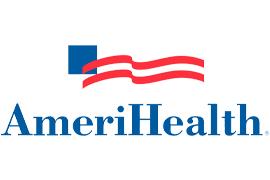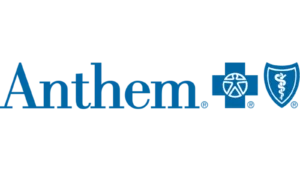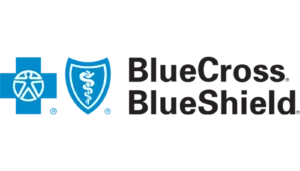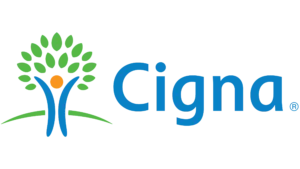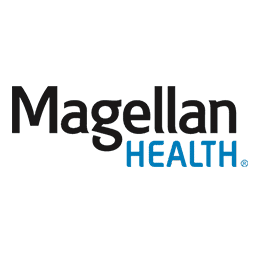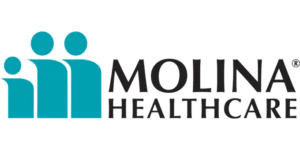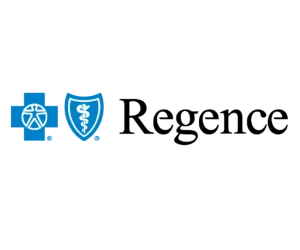At Full of Life Recovery Center, we understand how deeply addiction and mental health challenges can affect the entire family—not just the person struggling. It’s often the people closest to us who feel the ripple effects the most. That’s why we offer family therapy that’s centered on real conversations, healing broken trust, and helping families reconnect in meaningful ways. Whether you’re supporting a loved one through recovery or coping with the emotional weight of past trauma, we’re here to walk through it with you.
Our family therapy sessions in Marlton, NJ are a chance for everyone to be heard and understood. With the guidance of compassionate therapists, families work together to rebuild communication, set healthy boundaries, and move forward with clarity and care. These aren’t quick fixes—they’re steady steps toward healing that last. At Full of Life, we’ve seen time and again that when families come together to support one another, real change is possible.
How Addiction Deeply Impacts The Family Unit
Addiction is not a solitary struggle—it’s a condition that echoes through the lives of everyone connected to the person experiencing it. Families, in particular, bear the emotional, psychological, and financial weight of a loved one’s substance use disorder, often without the support they need to cope. The damage can be deep, persistent, and complicated, touching every corner of home life. Research consistently shows that addiction impacts the family unit as much as the individual, requiring a broader lens for recovery and healing.
One of the most immediate effects families experience is emotional turmoil. Loved ones often cycle through intense feelings including anger, guilt, fear, shame, and helplessness as they watch someone they care about spiral. This emotional distress can lead to chronic stress and mental health issues. According to the National Institute on Drug Abuse (NIDA), family members of people with substance use disorders are more likely to suffer from depression and anxiety. The emotional strain is often compounded by the unpredictability of addiction, where hope can quickly give way to heartbreak.
Trust, a cornerstone of healthy family dynamics, often deteriorates when addiction is involved. Substance use frequently leads individuals to lie, steal, or manipulate in order to maintain their addiction or avoid consequences. This can cause deep rifts in relationships. Studies in the Journal of Substance Abuse Treatment highlight that rebuilding trust is one of the most significant challenges families face during the recovery process. Broken promises, secrecy, and betrayal can leave lasting emotional wounds that make reconciliation and communication difficult.
Addiction also puts families under immense financial pressure. Resources may be drained by the cost of substances, legal fees, medical emergencies, or repeated stints in treatment. In many cases, one or more family members may have to reduce their work hours or quit their jobs to provide care or manage crises. A 2020 report from the National Center for Biotechnology Information (NCBI) found that families of individuals with substance use disorders are at increased risk for financial instability, often facing housing insecurity, debt, and the erosion of savings over time.
Social isolation is another common consequence. Families may withdraw from friends, extended relatives, or community networks out of embarrassment or fear of judgment. The stigma surrounding addiction creates silence, when what families need most is connection. This isolation can reinforce feelings of loneliness and hopelessness, reducing the likelihood that families will seek support or access therapy services designed to help them.
Perhaps the most heartbreaking impact of addiction is its effect on children. Kids growing up in homes with addiction often experience emotional neglect, chaotic environments, and sometimes physical or verbal abuse. These children are at higher risk for anxiety, depression, and academic struggles, and are more likely to develop substance use disorders themselves in adulthood. A longitudinal study published in Pediatrics found that adverse childhood experiences (ACEs), including parental substance abuse, are linked to a wide range of health and behavioral problems later in life.
Ultimately, the effects of addiction on families are vast—but so is the potential for healing. When treatment includes family therapy, education, and long-term support, outcomes improve for everyone involved. Programs that integrate family counseling and peer support can help rebuild trust, restore communication, and strengthen the family’s ability to support recovery in a healthy way. With compassion and the right resources, families can move from surviving addiction’s impact to thriving beyond it.

How Family Therapy Works in Addiction Recovery Programs
Addiction doesn’t just affect one person—it touches everyone close to them. When a loved one is struggling, relationships can become strained, communication breaks down, and the trust that once held a family together can start to slip away. That’s why family therapy is such a meaningful part of the recovery process. It’s a space for everyone to come together, talk openly, and begin to heal. These sessions aren’t about blame—they’re about understanding what’s happened, how it’s affected each person, and how to move forward with honesty and care.
During family therapy, loved ones sit down with a trained therapist to work through difficult conversations—often for the first time in a long while. These sessions may explore unresolved pain, unhealthy patterns, or enabling behaviors that have developed over time. With gentle guidance, families begin to rebuild communication and learn how to support recovery in a healthy way. It’s a powerful opportunity to not only help the individual in treatment but also to heal the family as a whole.
At Full of Life Recovery Center, we understand that recovery is stronger when families are involved. That’s why we make family therapy a key part of our South Jersey addiction programs. We’ve seen firsthand how parents, partners, and siblings can grow alongside their loved one in treatment, creating lasting change and deeper connection. Whether you’re trying to repair trust, learn how to set boundaries, or simply find your way back to one another—we’re here to help make that possible.
Healing is a shared journey. Our role is to walk beside you as you navigate it together. Through supportive conversations, compassionate care, and a focus on long-term growth, we help families find their footing again. At Full of Life, we don’t just believe in individual recovery—we believe in family recovery, too.
Our Approach to Family Therapy in Marlton NJ
At Full of Life Recovery Center in Marlton, NJ, we believe that healing happens not only in the individual, but in the family as a whole. Addiction and mental health challenges often shift the way families function—sometimes in ways that aren’t obvious until relationships begin to fray. That’s why our family therapy services are never one-size-fits-all. Our experienced therapists take the time to understand the unique history, personalities, and needs of each family, tailoring every session with compassion and intention. We use a variety of evidence-based therapeutic techniques to guide families through the process of healing, communication, and mutual growth.
Here’s a closer look at the approaches we may use during family therapy at Full of Life:
-
Family Systems Theory: We examine how each family member influences and is influenced by others within the household. By recognizing patterns of behavior and communication, we help families break cycles that may unknowingly enable addiction or reinforce unhealthy dynamics. This approach encourages families to function more cohesively and with greater awareness of each other’s needs.
-
Communication Skills Training: Misunderstandings and emotional distance often result from poor communication. We teach practical tools for active listening, expressing emotions constructively, and resolving conflicts without blame or defensiveness. These skills help rebuild trust and foster a more supportive, open environment.
-
Psychoeducation: Addiction can be confusing and overwhelming. We take time to explain the nature of substance use disorders and mental health conditions—how they affect the brain, behavior, and family relationships. By increasing understanding, we help reduce stigma and empower families to take an active, informed role in the recovery process.
-
Boundary Setting: Families often struggle with knowing when to help and when to step back. We work together to define clear, healthy boundaries that protect both the individual in recovery and the well-being of other family members. These boundaries are essential for preventing enabling behaviors and supporting long-term healing.
-
Family Dynamics Exploration: Every family has roles and patterns—some helpful, some harmful. We help uncover the root causes of dysfunction, such as codependency, unresolved conflict, or role reversals, and guide families in creating healthier ways of relating to one another.
-
Relapse Prevention Planning: Recovery is an ongoing journey, and the support of loved ones plays a critical role in maintaining progress. We involve the family in creating a realistic and compassionate relapse prevention plan, equipping them with tools to recognize warning signs and respond effectively if challenges arise.
At Full of Life’s drug and alcohol rehab in Marlton, New Jersey, we walk beside families as they rebuild, reconnect, and rediscover their strength—together.
The Benefits of Our Family Therapy Program for Substance Abuse in South Jersey
The team at our comprehensive addiction treatment programs in South Jersey see the power of family involvement in the healing process every day with our clients. Addiction often causes deep emotional wounds, not just for the person struggling, but for everyone who loves them. Our family therapy program is designed to help rebuild those bonds by offering a safe, supportive space where honest conversations can happen and healing can begin.
One of the most important benefits of family therapy is the improvement in communication. Many families affected by addiction fall into patterns of miscommunication or avoidance, which only adds to the pain and confusion. Through guided sessions, we help loved ones learn how to express themselves more clearly, listen without judgment, and resolve conflict in a healthy way. These skills don’t just support the recovery process—they strengthen relationships for the long term.
Family therapy also gives loved ones a better understanding of addiction itself. When families begin to understand that addiction is a chronic illness—not a moral failure—they can shift from blame and frustration to compassion and support. This shift can be incredibly motivating for the person in treatment. Knowing that their family is engaged and invested can inspire them to stay committed to recovery and keep pushing forward, even when it’s difficult.
Ultimately, our goal is to build a family system that supports sobriety rather than unknowingly undermining it. A strong, informed, and connected family can significantly reduce the risk of relapse and provide a vital safety net during and after treatment. At Full of Life Recovery Center, we believe that recovery isn’t something you go through alone—it’s something we do together, as a family.
Compassionate & Supportive Family Therapy in Marlton NJ
At Full of Life Recovery Center in Marlton, NJ, we recognize that addiction is a family disease that requires a holistic approach to treatment. Our family therapy program provides a supportive and collaborative environment for families to heal, grow, and support their loved one’s journey to recovery. Through evidence-based interventions and compassionate care, we empower families to break free from the cycle of addiction and embrace a healthier, happier future together. Contact us today to begin your family’s healing journey.



